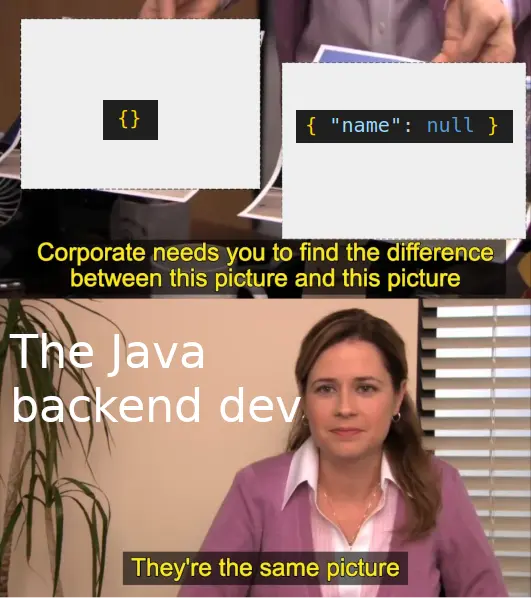this post was submitted on 30 Jun 2024
280 points (94.9% liked)
Programmer Humor
19570 readers
1413 users here now
Welcome to Programmer Humor!
This is a place where you can post jokes, memes, humor, etc. related to programming!
For sharing awful code theres also Programming Horror.
Rules
- Keep content in english
- No advertisements
- Posts must be related to programming or programmer topics
founded 1 year ago
MODERATORS
you are viewing a single comment's thread
view the rest of the comments
view the rest of the comments

If you’re branching logic due to the existence or non-existence of a field rather than the value of a field (or treating undefined different from null), I’m going to say you’re the one doing something wrong, not the Java dev.
These two things SHOULD be treated the same by anybody in most cases, with the possible exception of rejecting the later due to schema mismatch (i.e. when a “name” field should never be defined, regardless of the value).
They're semantically different for PATCH requests. The first does nothing, the second should unset the
namefield.Only if using JSON merge patch, and that's the only time it's acceptable. But JSON patch should be preferred over JSON merge patch anyway.
Servers should accept both null and undefined for normal request bodies, and clients should treat both as the same in responses. API designers should not give each bespoke semantics.
JSON patch is a dangerous thing to use over a network. It will allow you to change things inside array indices without knowing whether the same thing is still at that index by the time the server processes your request. That’s a recipe for race conditions.
That's what the If-Match header is for. It prevents this problem.
That being said, I generally think
PUTs are preferable toPATCHes for simplicity.